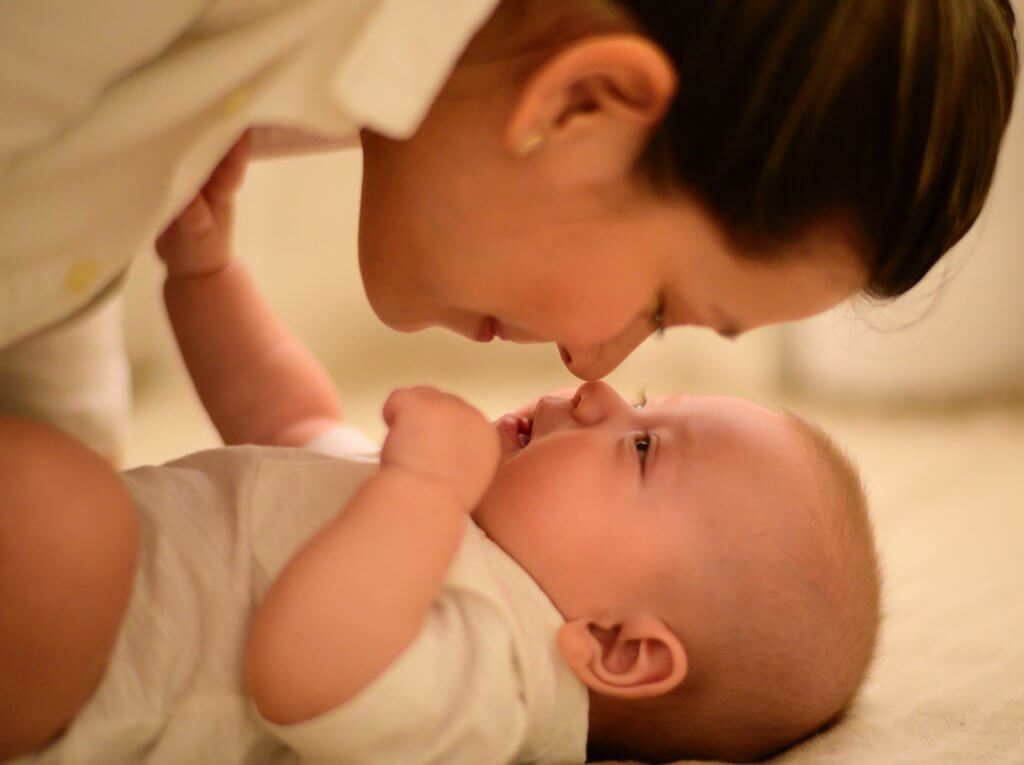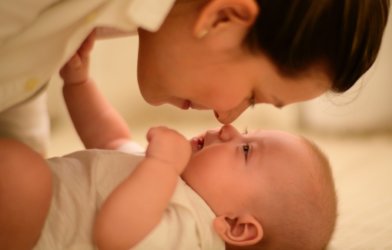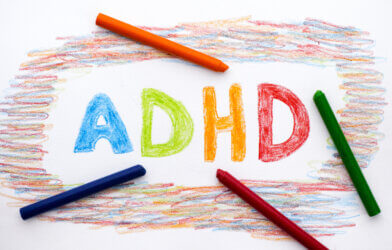Have you ever wondered why we use “baby talk” to speak to little ones? For mothers especially, talking back to their infants and young children by mimicking sounds and exaggerating words is a way to communicate. But for babies who seem to be uninterested in their mothers’ speech, it may be a sign of autism, warns a recent study.
Motherese, as it is known, is a way of engaging with babies and young toddlers through melodic expression. This innate form of communication between mothers and their young children is universal. Babies are found to prefer hearing their mothers speak to them this way, as research shows it kept their attention and provided a necessary component for learning and bonding.
A team at the University of California San Diego School of Medicine, led by Eric Courchesne, PhD, Professor of Neuroscience, conducted a study to observe a child’s response to baby talk by measuring brain activity. Researchers used several methods to determine what area of the brain was responsive to this form of early communication between mothers and their children. The study focused primarily on children who exhibited early signs of Autism Spectrum Disorder (ASD).
Children who show signs of ASD are not as responsive to their mothers who speak to them using infant-directed speech, as they do not hold attention to this form of interaction. Brain imaging along with eye-tracking and clinical testing were used in the study to observe children with autism and their brain development. Previous research has shown children with ASD are known to have decreased ability to process and respond to language and social situations.
“This new study, which combined state-of-the-art brain imaging, eye-tracking and clinical testing, opens the door toward precision medicine in autism,” says senior author Eric Courchesne, a professor of neuroscience at the school, in a statement. “For the first time, we are seeing what the possible brain impact is for children with autism who fail to pay attention to social information.”
Researchers at the Autism Center of Excellence at UC San Diego, in collaboration with Courchesne, conducted a study hypothesizing ASD infants and toddlers had impaired development of neural function that responds to motherese. Testing was conducted using 200 datasets involving 71 toddlers and 41 datasets from 14 adults. Sleeping toddlers were observed using functional magnetic resonance imaging and their brain activity was measured when motherese and other forms of speech were introduced. Social and language assessments were conducted, and eye-tracking was observed when motherese was spoken. Comparisons were measured against non-spoken computer sounds and images.
The study found that a child’s neural activity and response to speech were directly tied to social and language development. Children with ASD had the poorest neural response to their mother’s speech interaction and showed patterns of severe social behavior. Previous research of toddlers with ASD has shown these children are less interested in social activities and do not engage in social situations when stimuli is presented that would otherwise catch the attention of a child without ASD.
The study also affirmed that infants and toddlers with normal development showed positive responses to motherese and had strong neural responses to emotional communication.
Researchers used several different methods to conduct the study. Eye-gaze patterns were observed and compared to neural behavioral responses using a process called “similarity network fusion,” which identified and compared similarities and differences among the subjects. The superior temporal cortex, the part of the brain that processes sound and language, was found to have a weak response to motherese in children with ASD. Eye-tracking attention was also observed to be lower and social responsiveness was less in these children.
In contrast, neurotypical children had stronger temporal neural responses to motherese and stronger emotional communication.
The findings are not black and white, however. There were several ASD children in the study who showed some response to motherese, despite the majority failing to engage in reactive, affirming behavior to their mothers’ voices. Researchers are hopeful that because a few children showed brain activation and attention to motherese, there is reason to believe these toddlers were poised to have good outcomes.
The authors of this study believe their research will be useful in determining early diagnosis of ASD and will be helpful in developing other diagnostic tools in the future. This research also provides reference for how ASD presents in toddlers and how the condition varies from one child to another.
Findings from this study were first published in the journal Nature Human Behavior.
Article by Elizabeth Bartell













Comments